Union’s Victory Brings Latin to a New Horizon
The union posted on their Instagram to alert followers of their victory.
When Head of School Randall Dunn sent an email to Latin students and families on April 13 notifying them of his unwillingness to accept certain faculty members’ request to voluntarily recognize a teachers union, an ideological divide between faculty and administration came into public view, but another divide—within the faculty itself—also emerged, right up to the culmination on June 2, when the faculty union was voted in by a 88-60 margin.
While the union won comfortably, a solid 40% of teachers who voted cast their ballots against the union. Teachers advocating for unionization hoped a union would bring the school together, but it is yet to be determined whether the union’s victory will have this effect.
What is clear is that there is much healing needed at Latin following a campaign characterized by passionate arguments among Latin faculty and also partisan commentary from students, who were also divided this spring by the unionization movement.
Mr. Dunn, standing ironically with a painting of two Roman arches—a symbol the union has adopted as their logo—behind him, explained that the result of the election was not what he wanted, but nevertheless, is now reality. He knew at the beginning of the COVID pandemic that at this point in the year, “There were going to be things we would have to work through to build our community in a way that represents who we want to be as a school, and that continues to be the goal here, with or without the union.”
He mentioned the poem “Invictus” by William Ernst Henley—the poem he famously recites every year on the first day of school. His beloved poem fits nicely into how he plans on proceeding: “Under the bludgeonings of chance, My head is bloody, but unbowed,” the poem reads.
“We are in a situation that we will work with and work through,” he said.
Union spokesperson Elissabeth Legendre said she feels “great” about the results of the election. “We had such a great turnout, and I’m just really excited that we’re done with the organizing part and can move on to the hard work that comes next.”
Of the union’s next steps, she hopes to “come together as a faculty to work together, to figure out what the next year is going to look like.” As for what she believes Mr. Dunn’s next steps should be, she said, “I hope that he joins us in that work.”
For Mr. Dunn’s next steps, he said that there is a seven-day period in which the administration will evaluate the process of the election and see if there are any things they need to go back and ask questions about, “and make sure everything was fairly done.”
Mr. Dunn plans to learn as events unfold. “Having not done this before,” he said, “[we] will learn and we will understand what steps we need to take to begin to have conversations with the Illinois Federation of Teachers and the union.”
“Even those who desired [the union], they didn’t know all of the details that are now coming forwards, so we are still in a place of uncertainty and learning,” he said. “But one thing we’ve learned from this year is that we can do that, too. We can learn and grow through most things that are uncertain at this point. It’s muscle that we’ve built.”
While he didn’t know an exact date, Mr. Dunn said that the administration and a union representative will now enter a collective bargaining process, which means, according to him, “sitting down and bargaining and talking about particular aspects of contracts, benefits, details about how the school is structured and run. All those things get to be talked about and negotiated towards a contract and for the faculty.”
When asked what Mr. Dunn could have done differently, Ms. Legendre said, after a long pause, “I understand that Mr. Dunn didn’t think that this was the right thing moving forward, and I think that [the administration] did what they felt they needed to do, and we, the faculty, did what we thought that we needed to do. But, the faculty has spoken, and so I hope that we can all focus on what matters coming next.”
“We all want to work to make Latin the best place that it can be, and so I think we should, well, we’re going to focus on that,” she said.
As for what he could have done differently to have prevented the formation of a union, she said that it was beyond anything he could have done. She appreciated his “open-door policy,” but he can’t give the faculty things like “having some legal protection and having a voice at the table,” only a union can.
“Work in the United States right now is changing drastically,” she said. “I think that, as workers in the pandemic, we just looked around and saw how we are at-will employees and, as great as our benefits are, they can change. And that’s not Mr. Dunn, that’s not how he has structured things. It’s just the way that working without a union is in the United States today.”
She said that unionizing is a bigger movement, not just a reaction to how things went this year.
Mr. Dunn didn’t have an answer when asked what he would have done differently to prevent a union. “It’s hard to say in this moment. To be very honest, it’s really hard to say, because I feel as if this year had an impact on all of us in ways that were just negative. We all had a bad year, and as the leader of the school, I guess I need to spend some time to figure out exactly what I could have done personally to prevent this, but I’m not sure if I alone could have prevented this.”
More specifically, he said, “I make decisions, but I make decisions based on things that the community needs, things that students need, parents need, faculty need. And I don’t know if, based on all the decisions that I’ve made, I don’t know if there was one decision or two decisions or anything that would have prevented this from happening.”
This year, many teachers didn’t feel listened to, especially with the return to in-person learning. When asked what he would say to a pro-union teacher who felt that this year, they had no voice, Mr. Dunn said, “It was not a circumstance where we didn’t listen. It was not a circumstance where people didn’t have a seat at the table. It was a circumstance where, due to the factors that we had to deal with, listening and doing exactly what someone says were two different things.”
He continued, “So it was a circumstance of listening and needing to make a decision that everyone didn’t agree with. And what I would say is, we listened. We did the best we could for the institution, kids, parents, faculty, in all situations, safety, all of those things we’re taking into consideration and decisions were made that everyone didn’t agree with.”
The dynamic of the past year showed the different, often opposing interests of students, families, and teachers. Many students wanted to return in-person, while teachers were more cautious. The administration was effectively caught in the middle and needed flexibility to balance interests, but neither side seemed eager to give the administration that flexibility.
When asked if the faculty were sufficiently empathetic to the plight of the administration, given that they themselves expected empathy from the administration, Ms. Legendre responded, “Yes, I do. Absolutely.”
Every year, Latin faculty have the opportunity to fill out the Lee Groves Consulting’s (LGC) annual Faculty Council feedback survey. According to the survey, the faculty’s discontent for the administration grew markedly once the pandemic hit.
In the surveys from 2019 and 2020, the relationships between faculty and administration seemed to be good. This past year was indeed an unprecedented year in which no one had a playbook on how to deal with the situation; hence, the plummeting approval rating. Mr. Dunn’s approval rating from the faculty floated at 78% in 2019, 85% in 2020, and plummeted to 31% in 2021. The percentage of faculty who said they feel appreciated by the Board of Trustees was at 70% in 2020, and dropped to 24% in 2021. Additionally, the number of respondents who completed the 2021 survey was at least a third to a half lower than previous years. In absolute levels, less than 50% of faculty completed the survey, raising the question of whether the results are truly representative of the faculty.
Ultimately, the deeper question is whether the faculty survey results for 2021 were a one-time, somewhat understandable anomaly in response to the COVID pandemic, to which the faculty reacted in a permanent way.
“If you look at the survey,” Mr. Dunn said, using a downward motion with his hand, “anything you look at, you see that we were on a trajectory up, COVID hit and everything went down.”
He added, “It’s not a secret that the ratings went down because of the way we’ve had to operate in this very, very difficult year.” He acknowledged that surveys, during both good and bad years, reveal only one piece of the puzzle, but overtime, the survey, up until 2021, revealed an upward trend. “No matter how good you get, you can get a little better. And I think there’s always room for improvement, and I think of school and working with humans as a thing that is never going to come to a conclusion where circumstances are perfect, because it’s complicated.”
Ms. Legendre responded to critics who would use the survey to say that the teachers overreacted to one, anomalous, bad year. “I think that the pandemic was a stress test,” she said. “In a stress test, you wreck it. You see the places where you need to work harder to make some changes, to fix things. And I would say that this pandemic has stressed Latin School in ways that have shown that we need to make some changes, and the faculty said that this is the change that we want to see going forward.”
She added, “If there was an earthquake, you wouldn’t say, ‘Well, you know, I know that my basement, my foundation, is bearing the cracks, but I don’t have to fix that because last year I didn’t have cracks.’ [The pandemic] showed some cracks, and we just have to do some work to fix those cracks. And I think that a union brings us to where we need to be.”
She said it wasn’t about a “single decision”; rather, it was about “the process of it all.”
Many teachers felt that the decisions this past year were being made without their input, when they are the ones who would have to carry out the policies. According to Ms. Legendre, they will be “in the classroom with students, making sure that everybody is being safe and washing hands, and staying six feet apart, or wearing masks and things like that. And Mr. Dunn said that he made these decisions without talking to the Faculty Council or talking to the faculty and that’s our working conditions, so it just wasn’t good.”
Mr. Dunn said that so far, he hasn’t thought much about how the administration plans to prevent a strike. “Having not been in these circumstances previously, we will work in the best way we can to not have that be something that happens at our school. My hope is that the union and others will also work hard not to have that happen.”
“But, I think that the folks in the public schools who have had to strike have worked hard not to do that as well, so it’s really hard to predict what impact that will have. But I just know, especially given kids and families wanting to desperately be in school this year, we know the impact that that can have, and we will work hard not to have that be the case.”
Mr. Dunn said, “I’m thankful for those folks who worked really hard to represent the school in the most positive way they could in all of this. It was contentious and emotional at times. And I know that everyone is thinking of the best thing.”
He added, “I’m thankful for those folks who worked really hard to both express the real positive intentions that they have for kids and for education. That’s what this is all about. And so, thanks to everyone for the hard work they put into thinking about what’s best for our school.”
Ms. Legendre said, “I just really look forward to moving on. And coming together and working together to make what I think is a great place an even greater place.” At Latin, she believes, “We care about each other. We respect each other. We work really well together and I think that a union is just going to make us all stronger.”
Most would agree the zeitgeist at Latin this year was decidedly grim, and now that the votes have been counted and the tide has, for now, settled, this new chapter brings further uncertainty but also perhaps hope for calm and healing.
As the tide turns another wave, we’ve pulled the anchor and the ship has left. Latin has entered a new horizon in uncharted waters.

Ashna has been writing for The Forum since freshman year, and it remains one of her favorite activities. She also enjoys working out, making...















































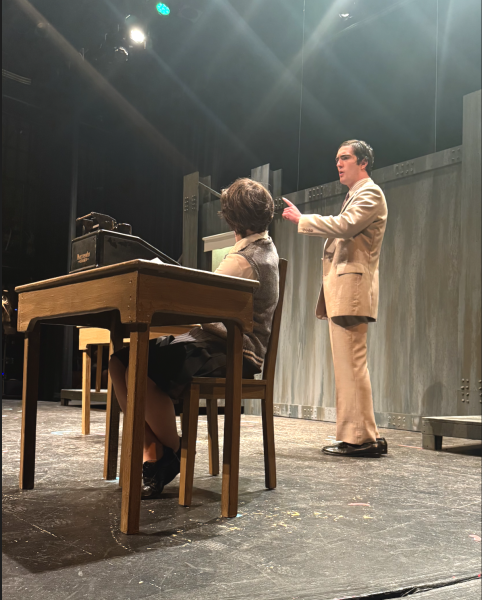
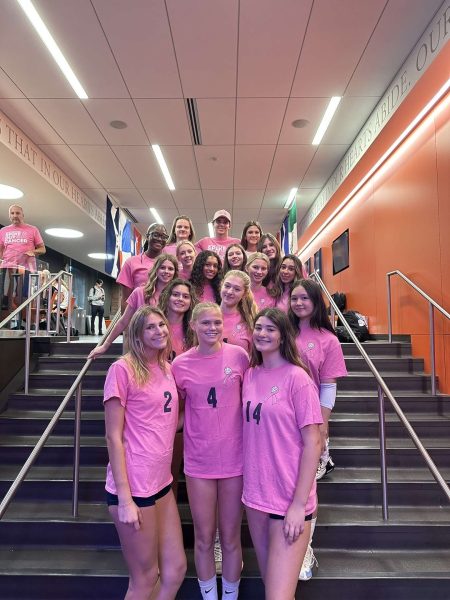
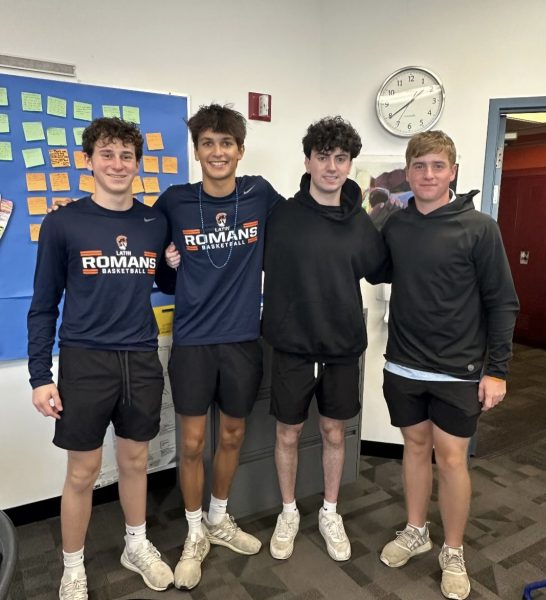
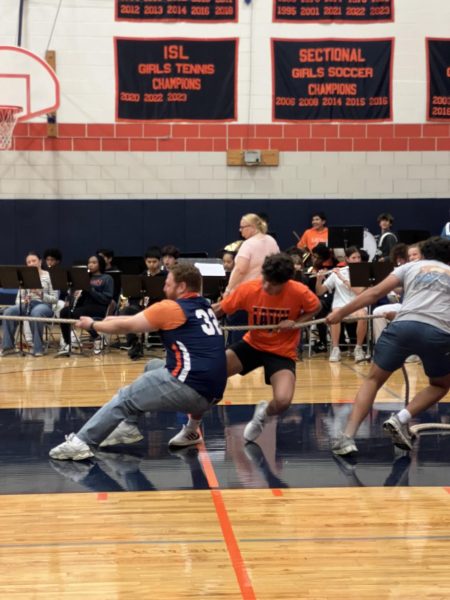
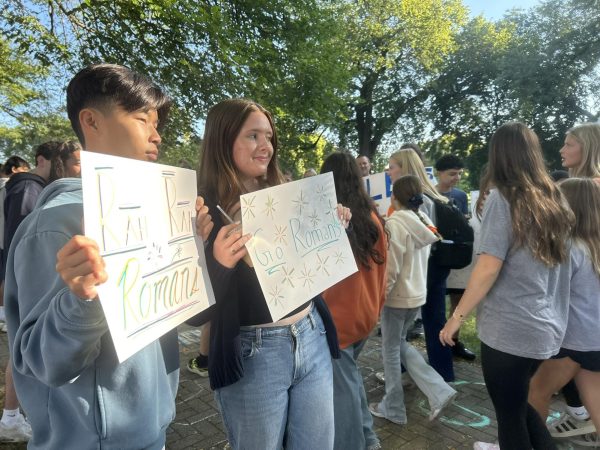

Tim Kendrick • Jun 6, 2021 at 11:53 pm
Ashna! Brilliant commentary on the survey analysis, displaying some wonderful application of your work in stats this year. Non-response bias is definitely in play each year with these surveys. Census for the win! Thanks for your continued excellent coverage on this issue.
Marin Creamer • Jun 6, 2021 at 11:40 am
Incredible reporting, Ashna! I will miss reading your union coverage 🙁